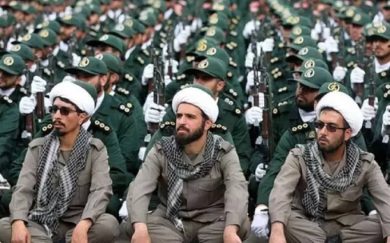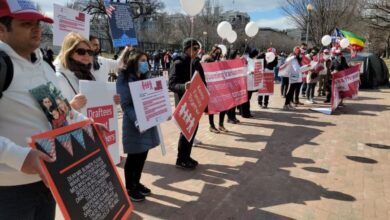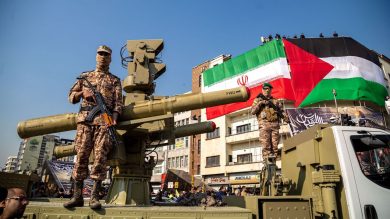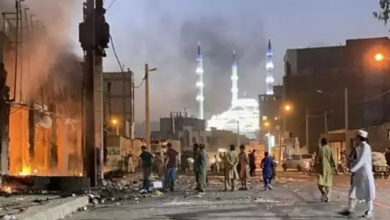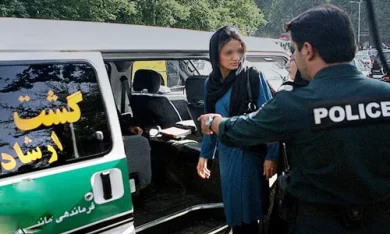The Islamic Revolutionary Guard Corps (IRGC) wields immense power within Iran, not only as a military force but as an ideological enforcer and instrument of domestic control. Tasked with preserving the Islamic Republic, the IRGC operates with near-total authority, suppressing dissent and maintaining societal control through a combination of surveillance, intimidation, and violence. Its influence extends across every aspect of Iranian life, from politics and the economy to education and culture, making it a central pillar of the regime’s authoritarian rule.
This analysis examines how the IRGC crushes dissent and consolidates power within Iran, exploring its methods, impact on society, and implications for human rights.
The Role of the IRGC in Controlling Society
The IRGC was established in 1979 to protect the Islamic Revolution and its ideals. Over the decades, it has transformed into a multifaceted entity with extensive control over Iran’s political, economic, and social structures.
1. Suppressing Political Dissent
The IRGC targets individuals and groups that challenge the regime’s authority, using:
• Surveillance: Monitoring activists, journalists, and opposition figures through advanced cyber and physical surveillance systems.
• Arrests and Detention: Arbitrary arrests and imprisonment of political dissidents, often without due process.
• Torture and Intimidation: Detainees report physical and psychological torture to extract confessions and intimidate others.
2. Controlling Protests
The IRGC plays a key role in quelling protests, deploying its Basij militia and other forces to suppress demonstrations. Examples include:
• 2009 Green Movement: The IRGC violently cracked down on millions protesting election fraud, killing, and imprisoning thousands.
• 2022 Protests Over Mahsa Amini: Widespread demonstrations against mandatory hijab laws were met with brutal force, resulting in hundreds of deaths and mass arrests.
3. Enforcing Cultural Conformity
The IRGC enforces strict adherence to Islamic values, targeting:
• Women’s Rights Activists: Women defying hijab laws face harassment, imprisonment, and public shaming.
• Artists and Intellectuals: Those promoting liberal or anti-regime ideas are censored or prosecuted.
• Minorities: Ethnic and religious minorities face systemic discrimination and cultural suppression.
Economic Control as a Tool of Repression
The IRGC’s dominance in Iran’s economy allows it to suppress dissent by:
• Monopolizing Industries: Controlling key sectors such as construction, telecommunications, and energy, limiting opportunities for private enterprise.
• Economic Retaliation: Targeting businesses and individuals perceived as opposing the regime through fines, closures, or confiscation of assets.
• Sanctions Evasion: Using its economic power to fund domestic repression while evading international sanctions.
The Tools of Repression
1. Basij Militia
The Basij, a paramilitary force under the IRGC, is instrumental in maintaining control over society:
• Intimidation: The Basij monitors neighborhoods, reporting “anti-revolutionary” activities.
• Violent Crackdowns: Used to disperse protests and silence dissent, often with excessive force.
• Cultural Enforcement: Ensuring compliance with dress codes and Islamic norms.
2. Cyber Surveillance
The IRGC’s cyber units monitor social media, intercept communications, and track activists. They use this information to:
• Identify and arrest dissenters.
• Launch disinformation campaigns to discredit opposition figures.
• Restrict internet access during periods of unrest.
3. Media and Propaganda
The IRGC controls significant portions of Iran’s media, shaping public narratives to:
• Justify crackdowns on dissent as protecting national security.
• Promote loyalty to the regime.
• Discredit opposition movements and foreign governments.
Impact on Iranian Society
The IRGC’s actions have profound consequences for Iranian society, including:
1. Fear and Intimidation
The pervasive reach of the IRGC creates a climate of fear, discouraging open criticism and dissent.
2. Stifling Civil Society
Arrests and harassment of activists, NGOs, and journalists weaken civil society, leaving Iranians with limited avenues for advocacy and reform.
3. Erosion of Trust
The IRGC’s brutality and corruption erode public trust in government institutions, fueling resentment and alienation among the population.
4. Brain Drain
Repression forces many educated Iranians to flee the country, depriving Iran of talent and innovation.
The IRGC’s Justification for Repression
The IRGC frames its actions as necessary for preserving Iran’s Islamic values, national security, and sovereignty. It labels dissenters as agents of foreign powers or threats to stability, using this narrative to justify its repression.
Resistance Despite Repression
Despite the IRGC’s control, resistance persists:
• Grassroots Movements: Women, students, and labor groups continue to protest despite severe crackdowns.
• Digital Activism: Iranians use encrypted apps and social media to organize and expose the regime’s abuses.
• Exiled Communities: Iranian activists abroad amplify the voices of those silenced within the country.
The Role of the International Community
The global community can support Iranian society by:
1. Imposing Targeted Sanctions: Sanctions against IRGC officials and entities involved in human rights abuses.
2. Amplifying Voices: Providing platforms for Iranian activists and journalists to expose the IRGC’s actions.
3. Promoting Internet Freedom: Supporting tools to bypass censorship and ensure secure communication for activists.
Conclusion
The IRGC’s systematic suppression of dissent and control over society make it a cornerstone of Iran’s authoritarian regime. Its actions stifle freedom, crush civil society, and perpetuate fear among the Iranian people. Despite this, resistance continues to grow, both within and outside Iran. Confronting the IRGC’s domestic repression requires international solidarity, targeted sanctions, and support for Iranian activists demanding justice and freedom.
Join Our Newsletter!
Stay informed with the latest updates, news, and ways to take action in the fight for justice and global security. Sign up now to get updates delivered straight to your inbox!

